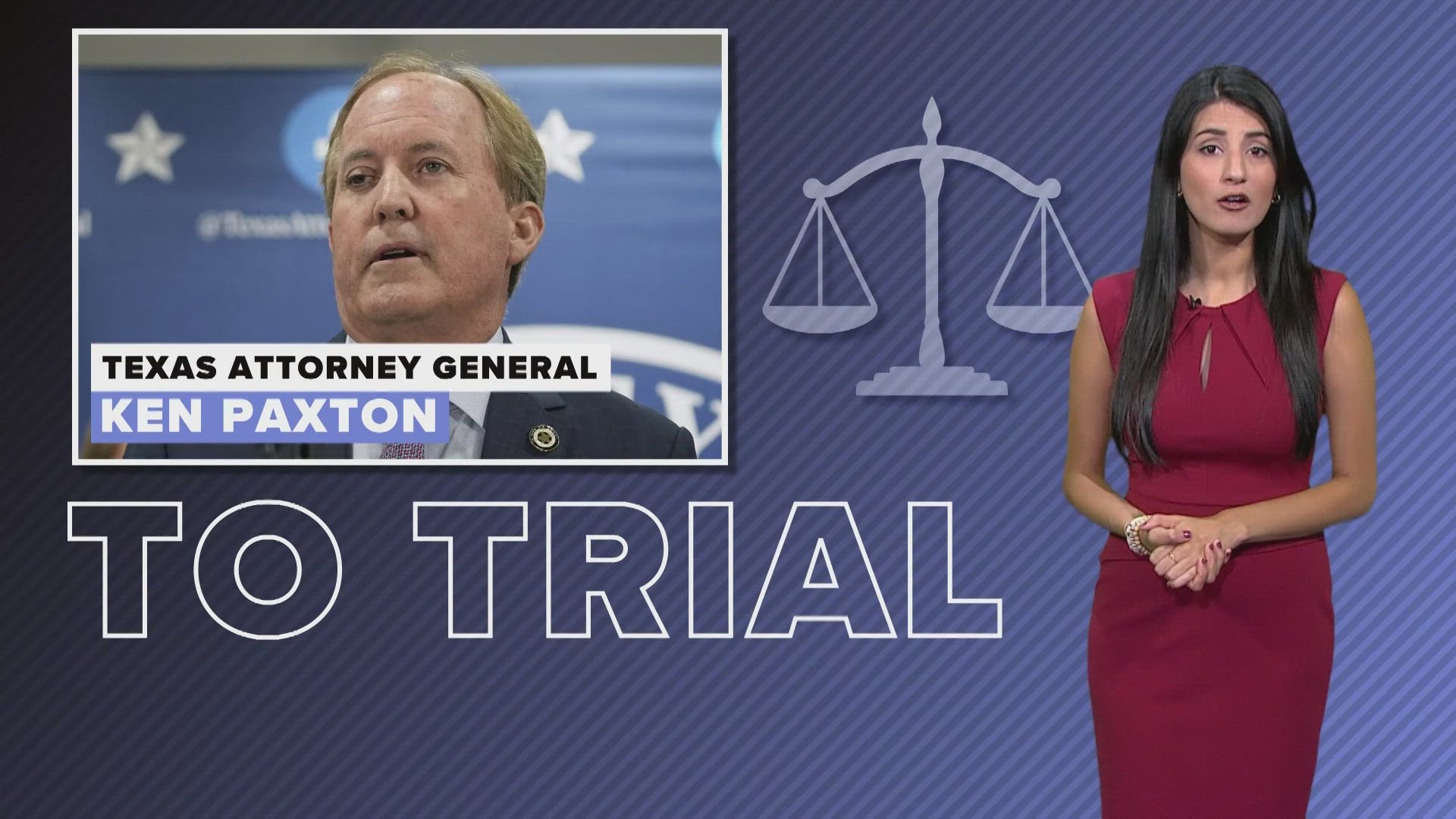AUSTIN, Texas — The impeachment trial of now-suspended Texas Attorney General Ken Paxton is just weeks away.
Paxton faces 20 articles of impeachment related to corruption, bribery and misuse of funds.
On Sept. 5 and inside the Texas Capitol, his political trial will begin.
It's neither a criminal nor a civil trial. While the impeachment trial will, in several ways, work like a regular trial, there are specific rules that must be followed.
First, it is important to know how members of the Texas Legislature will play a part.
- Lt. Gov. Dan Patrick is the presiding officer of the court of impeachment, or judge.
- The lone defendant in the impeachment trial is Warren Kenneth “Ken” Paxton.
- The House Board of Managers are the prosecutors.
- The jury is all members of the Texas Senate who are present and eligible to vote with a "yes" or "no."
- Angela Paxton, state senator and wife of impeached Ken Paxton, is ineligible to vote due to a conflict of interest. She is required to attend the trial, but may not vote on any matters, motions, questions or participate in closed-session deliberation.
- The senate sergeant at arms will act as bailiff, while the secretary of the senate will serve as the clerk.
Prior to the trial, all pre-trial motions and answers are submitted in writing to Lt. Gov. Patrick. From there, he sends them to a special committee on rules and procedures for court of impeachments. This committee consists of five members who make recommendations on all motions and amendments.
Like in regular trials, Paxton has rights as a defendant. Paxton is required to attend the trial; however, he is not required to take the stand to testify. He or his attorneys may enter a plea, but if a plea is not made, the Senate will move forward with a plea of “not guilty.”
The witness list has been made confidential; however, we do know that no member of the court (senator) or presiding officer may be called or volunteer as a witness – unless the evidence is relevant.
Patrick will swear in each person, and no witness can listen to the testimony of other witnesses. Witnesses cannot talk to each other about the trial and, much like regular trials, cannot read reports, watch television or look at social media.
Witnesses will only be examined by one person on behalf of the other party, and there are strict time limits in place. Both the defense and prosecution have 60 minutes allotted for opening statements and 24 hours of presentations. A witness may only be cross-examined for 60 minutes, and the same amount of time is given for rebuttal evidence per side. If there is a conviction, 15 minutes will be given, per side, to discuss whether Paxton would be disqualified from holding a future position in office.
When it comes to the verdict, there are three main differences between an impeachment trial and a criminal trial.
If Paxton is found guilty by the Senate jury, he will be removed from his position in office as the state’s attorney general. He would not be imprisoned.
In an impeachment trial, Gov. Greg Abbott cannot pardon Paxton. Additionally, a not-guilty verdict would mean Paxton can return to work. This, however, would not preclude him from facing charges in a court of law.
Senators, the jury, will vote on each individual article of impeachment. The vote can only be "yes" or "no" and cannot be changed once they are made. All votes are cast without debate or comment.
In the meantime, gag orders have been put in place for members of the court (senators), members of the House of Representatives, parties to the trial, witnesses, attorneys, employees, or agents of any of those listed. Statements cannot be made, and no one can instruct someone else to make statements on their behalf.
The impeachment trial for Warren Kenneth “Ken” Paxton begins Sept. 5.

